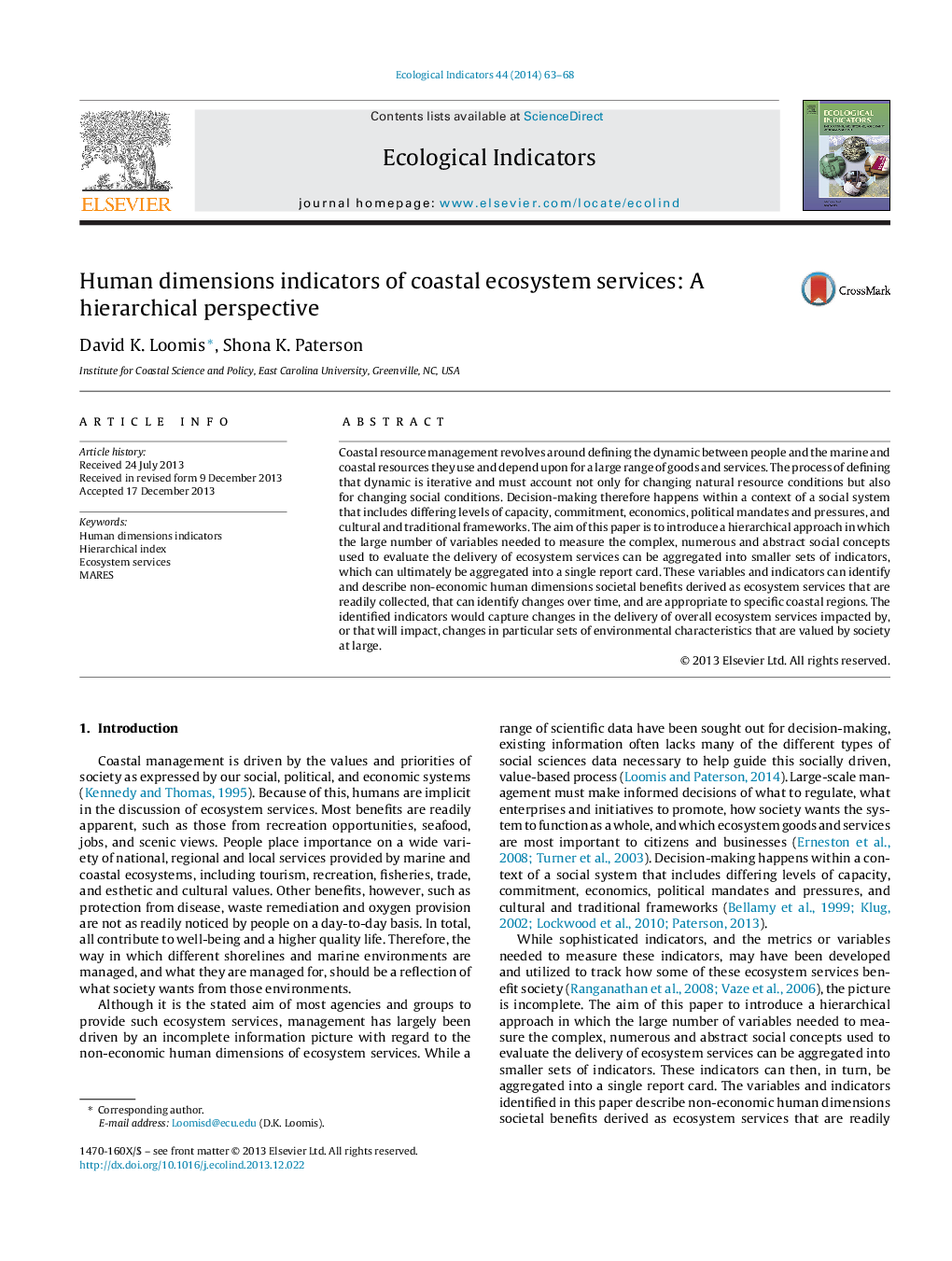| Article ID | Journal | Published Year | Pages | File Type |
|---|---|---|---|---|
| 4373125 | Ecological Indicators | 2014 | 6 Pages |
Coastal resource management revolves around defining the dynamic between people and the marine and coastal resources they use and depend upon for a large range of goods and services. The process of defining that dynamic is iterative and must account not only for changing natural resource conditions but also for changing social conditions. Decision-making therefore happens within a context of a social system that includes differing levels of capacity, commitment, economics, political mandates and pressures, and cultural and traditional frameworks. The aim of this paper is to introduce a hierarchical approach in which the large number of variables needed to measure the complex, numerous and abstract social concepts used to evaluate the delivery of ecosystem services can be aggregated into smaller sets of indicators, which can ultimately be aggregated into a single report card. These variables and indicators can identify and describe non-economic human dimensions societal benefits derived as ecosystem services that are readily collected, that can identify changes over time, and are appropriate to specific coastal regions. The identified indicators would capture changes in the delivery of overall ecosystem services impacted by, or that will impact, changes in particular sets of environmental characteristics that are valued by society at large.
